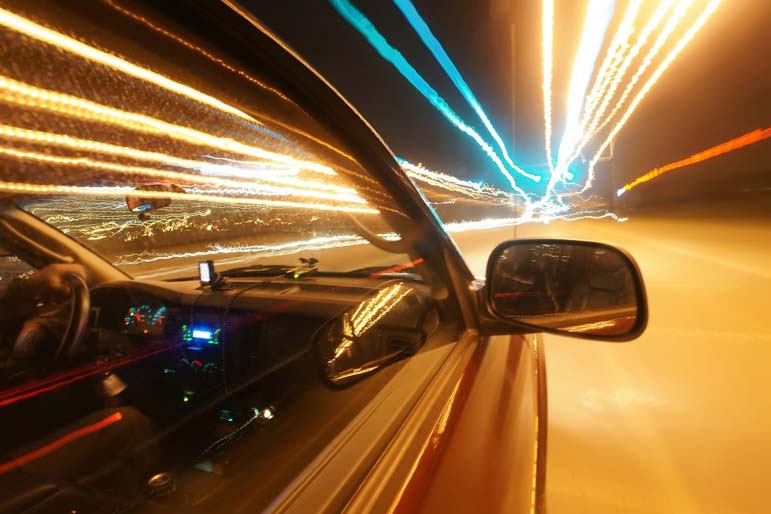
You don't often hear a libertarian praising a federal regulator when it starts offering "guidance" and "coordination" for some innovative industry. Well, mark your calendars, folks, because here goes: The National Highway Traffic Safety Administration is preparing to get deeper into regulation of self-driving cars. And that's great news.
Readers know that I'm a skeptical booster of self- driving cars. I think that we will get there, eventually. But I think that it will take longer than the less skeptical boosters hope, and that the road will be rockier than they are expecting, particularly in the U.S.
The goal is to get to what experts call "Level 4 Automation," a car that can truly pilot itself at all times without driver intervention. No commercially available car even yet has Level 3 automation, where the driver can cede control and read a novel while the car does the work, ready to take over when the car moves into a tougher environment, such as an urban street. "Self-driving" functionality in current cars is Level 2: The car does the work, but you have to have a hand on the wheel, ready to take over in a split second.
Level 2 automation is not really a self-driving car, and from the driver's perspective, sitting there staring at the road and waiting for something to happen is probably worse than just driving the car. Moreover, since people don't actually pay as much attention as they're supposed to when using these features, these systems will probably also cause some accidents even as they prevent others.
There are some big challenges on the way to Level 4:
• Technology. We think computers are smarter than us, but what they actually are is ferociously single-minded. This makes it hard for them to deal with conditions that a human handles easily -- like snow that obscures lane markers, or an emergency detour sign. Cars are already better than us at quickly noticing and predicting the movements of other cars. They're much worse at dealing with the less-expected adventures, the splendiferous array of surprises that fill everyday life. There are still a lot of gaps to fill in before a car can handle an urban street, or even a suburban cul-de-sac, where the computer has a lot more things than cars to deal with.
• Regulation.
Regulators are by their very nature risk-averse. Tragedies get laid at their door, while the main result of a success is that someone else gets the credit for whatever great new thing the regulator didn't prevent from happening. Innovating in a heavily regulated area, such as the national highway system, is thus a bit of a challenge. In the U.S., this difficulty is compounded by the fact that state and local governments also like to get in on the action. To get self- driving cars on our roads, we need a comprehensive federal framework that encourages innovation.
• Liability.
Self-driving cars will probably prevent thousands of accidental deaths every year. You would think that this would mean that liability costs would go down. However, it's more complicated than that. Right now, in the overwhelming majority of car accidents, the liability resides with the driver. That places sharp limits on how much a plaintiff can expect to recover, because most people do not have much in the way of assets in excess of the value of their liability insurance. The expected value of an average personal injury suit is therefore modest.
Suing Ford, on the other hand, is a very different matter. Ford has a lot of assets, and juries are not shy about giving it to sympathetic people who have had something terrible happen. Self- driving cars will move the liability for accidents from drivers to deep-pocketed companies, so even though the number of accidents will go down, the expected value of filing a lawsuit will go up.
Ideally, regulators will establish some sort of safe harbor for companies that make these systems: comply with these standards, and you will be deemed to be shielded from judgment. Even more ideally, we'd move toward a no-fault standard for self-driving car accidents, something like our national vaccine injury program: Everyone pays into the pool, and people who, say, get hit by a self-driving car that met applicable regulatory standards, will be eligible for scheduled damages without having to prove fault on the part of the manufacturer.
As you can see, there's a long way to go before you can climb behind the wheel of a car, say "Home, Jeeves," and take a nap. The good news is that, pegged to the State of the Union address, the National Highway Traffic Safety Administration has announced an initiative to help streamline the process. The president's fiscal 2017 budget proposes $4 billion for developing connected car systems, and that will certainly help. More important, however, is that the NHTSA is moving forward to offer more regulatory guidance on how we get there.
That's good news. As much as I love decentralized, spontaneously ordered innovation, self-driving cars cannot be a free-form jazz odyssey. There are too many human drivers still on the road, and too big a patchwork of state and local laws to handle. A federal agency with a clear vision needs to be at the helm.
The bad news comes in two pieces. First, they're pledging to develop better guidelines and work with states to come up with a consistent national policy. We could still end up with state-by-state guidelines that are needlessly restrictive (like California's insistence that self-driving cars must have steering wheels), or individual states could balk.
The other bad news is that the word "liability" appears nowhere in the regulator's announcement. That's not surprising, really. NHTSA is a safety regulator, not a court of law, so liability isn't really in its purview; that's the job of state lawmakers. But someone needs to get a handle on this problem, lest the lawyers prevent automakers from putting more highly automated cars on the road -- or early lawsuits set back the process by years.
Nonetheless, we are moving forward, and frankly, faster than I thought regulators would ever allow. So two cheers for NHTSA. I'll save the third cheer for when I see the actual guidance.
Megan McArdle is a Bloomberg View columnist who writes on economics, business and public policy. She is the author of "The Up Side of Down." McArdle previously wrote for Newsweek-the Daily Beast, the Atlantic and the Economist.


 Contact The Editor
Contact The Editor
 Articles By This Author
Articles By This Author